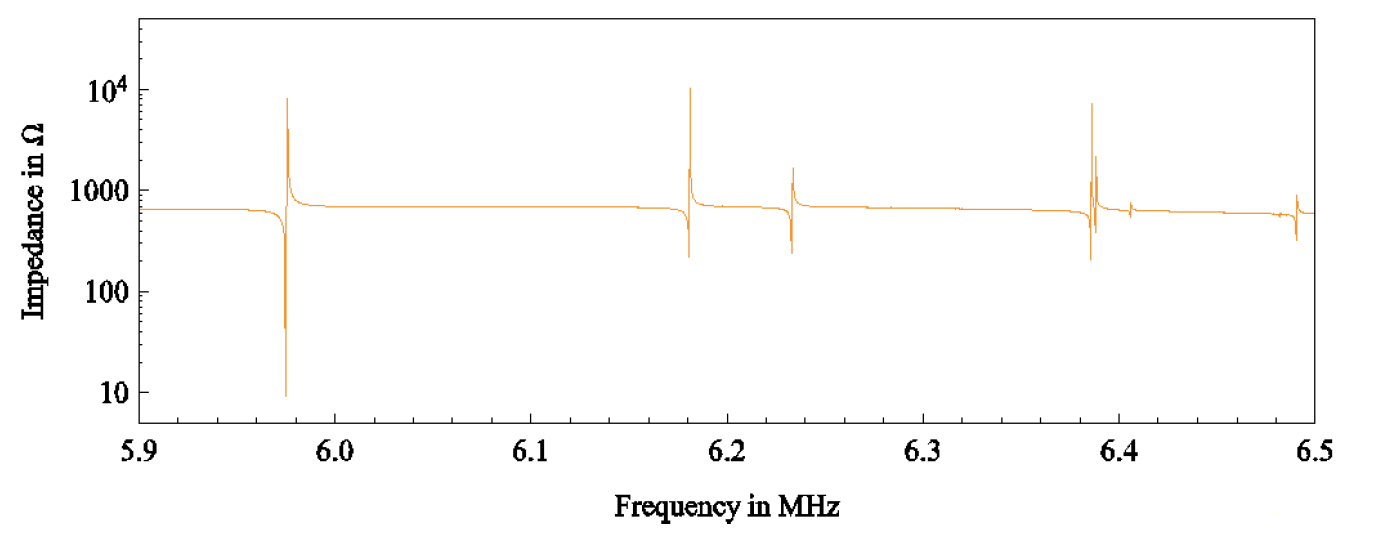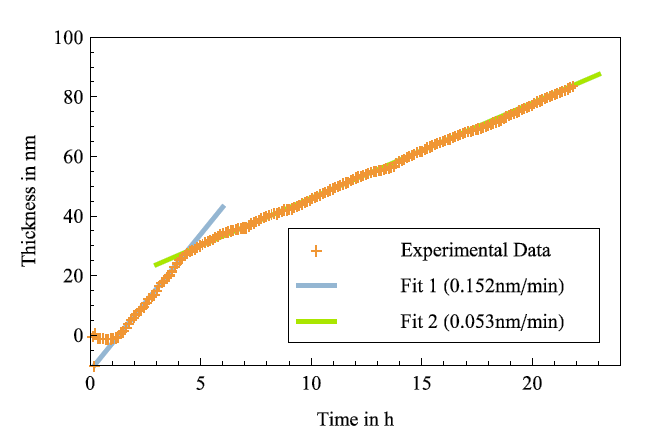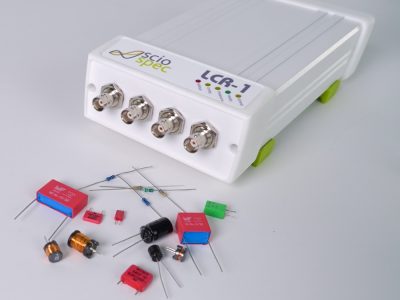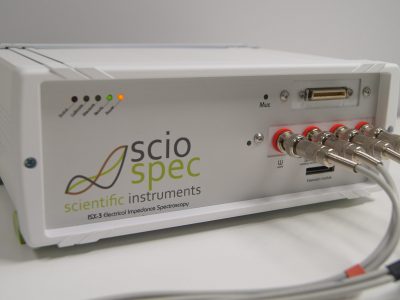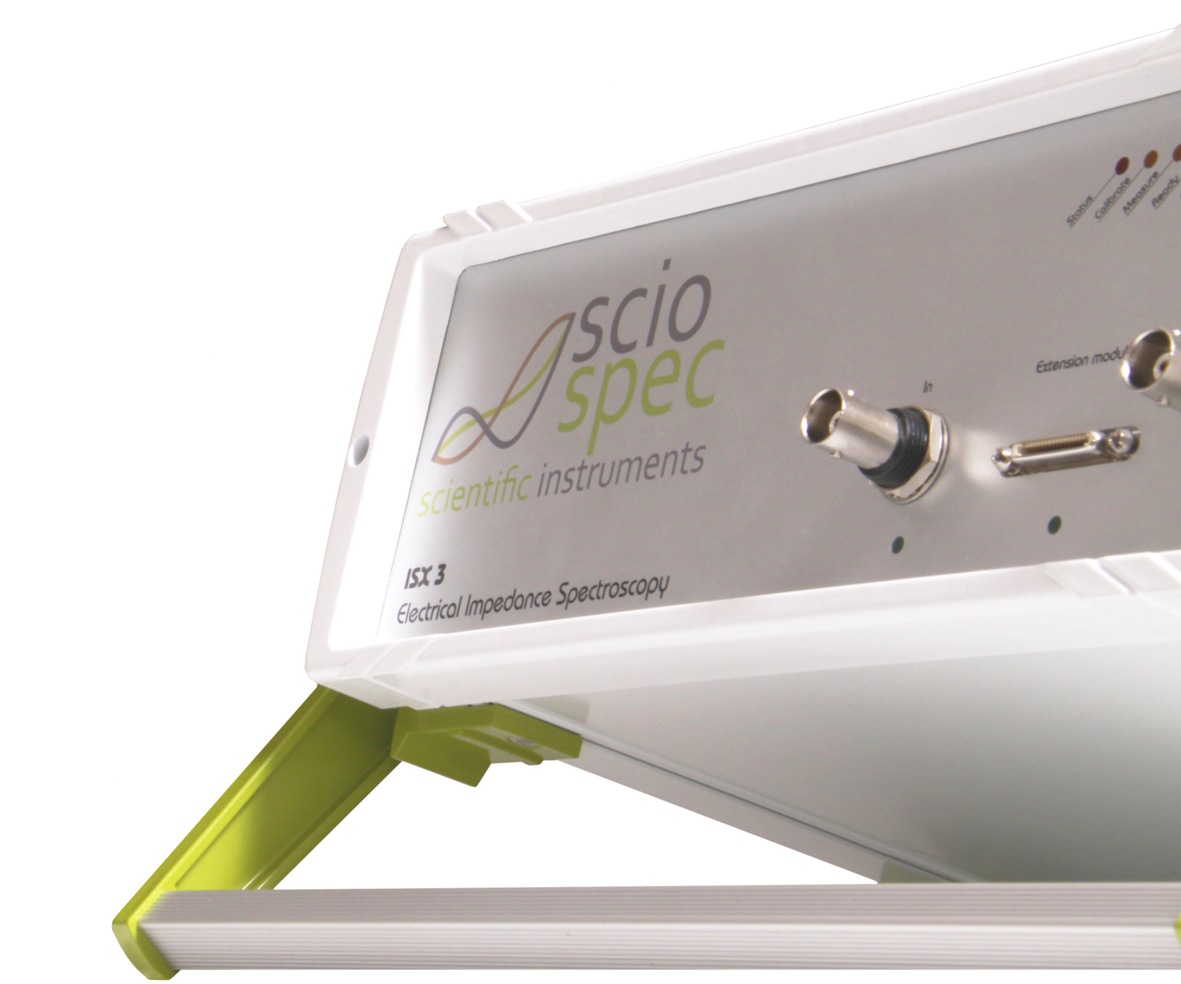
The measurement of the viscosity is very well known for sample volumes larger than a couple milliliters. The standard viscometers use either rotating parts, a flow through, a capillary system or falling spheres. This application note describes an example of measuring smaller sample volumes with no need for mechanical parts.
Setup
A thickness shear mode resonator (TSM) with a nominal frequency of 9 MHz was connected to the Sciospec ISX-3 by a custom adapter with SMA connectors. Since the sensitivity is highly dependent on the temperature of the sensor chip it was held constant at 25°C with an external temperature controller. The frequency range was set to 8.9 MHz to 9.1 MHz with 1001 linear distributed points. The inter-frequency delay was set to 10 ms, so the quartz system was allowed enough time to adapt to the change in generator frequency. As control fluid a sample of 1.2 ml double distilled Water was added to the sensor. After 5 min of equalization of temperature the impedance spectrum was measured and saved with the Sciospec Impedance Analyzer suite. After thorough rinsing of the TSM chip, this procedure was repeated with 10, 30, 50 and 70 mass-% glycerin solution. All impedance spectra are shown in Fig 1.
Evaluation
The resulting impedance spectra were fitted to a complex model2 developed by the Surface Dynamics Group of the Leibnitz Institute for Solid State and Materials Research Dresden. The model not only takes advantage of the main mode of the oscillator it also includes secondary modes. A total number of 5 modes per resonance were analyzed to estimate the viscosity with high precision (±5 %). This allows for a stable estimation since the whole impedance spectrum is used and not only characteristic frequencies or impedance values. Even a multiple layer system with estimation of the viscosity or density of each layer itself can be analyzed with this method. In this study a one inch quartz crystal was used.
The sample volume of 1.2 ml can be further reducedthrough the integration of smaller TSM sensor chips. As seen in Tab 1 and Fig 2 the resulting values for the viscosity are in good agreement with the theoretical values taken from “Physical properties of glycerine and its solutions” which were obtained by measuring much larger sample volumes.
Additional Validation
To validate the accuracy of the Sciospec ISX-3 system two methods were used. First of all a statistical analysis of each measurement was done to show the reproducibility of the system setup. Secondly a comparison to a conventional test setup was done by measuring the exact same sensor with an Agilent vector network analyzer E5071C. Both test results match to a very high degree and conclude in the same viscosity estimation. Fig 3 as an example shows the impedance spectra for the 30 mass-% glycerin – water solution measured with both devices. Almost no difference in the impedance spectra was found.
Outlook
The experiments proofed that Sciospec measuring technology compares well to conventional setups for the use with high-Q resonant sensors for analysis of ultra small fluid samples. Since Sciospec devices are highly modular, adaption to more complex application requirements is easily done. One module already in use integrates a high precision temperature controller into the instrument enabling complete standalone solution for this type of experiment. Multichannel solutions are currently in development. A novel algorithm for Sciospec devices reduces the interfrequency delay for resonant systems enabling ultra fast measurements. The complex model approach describe above will include multilayer parameter estimation of layer forming fluids.

